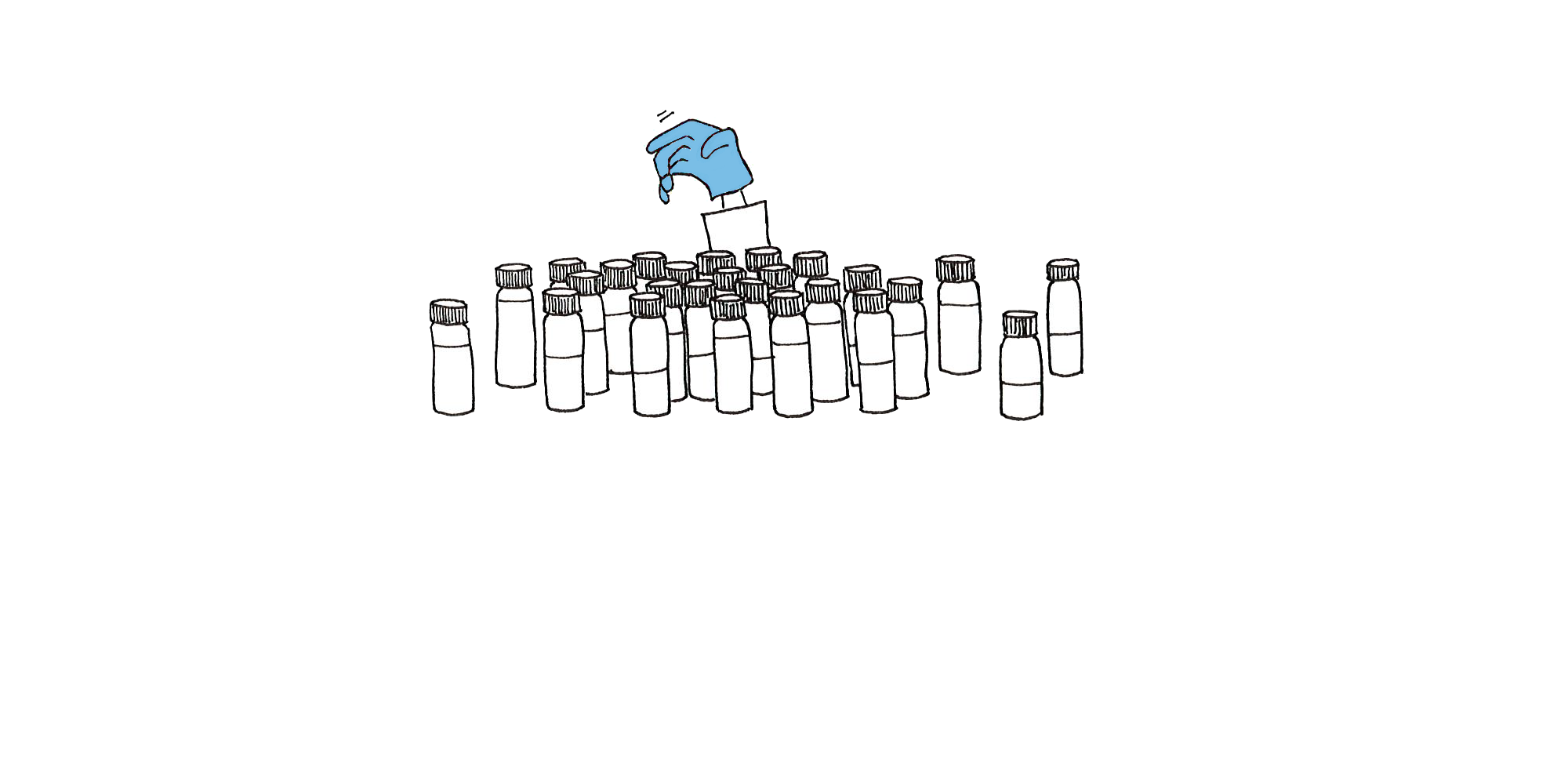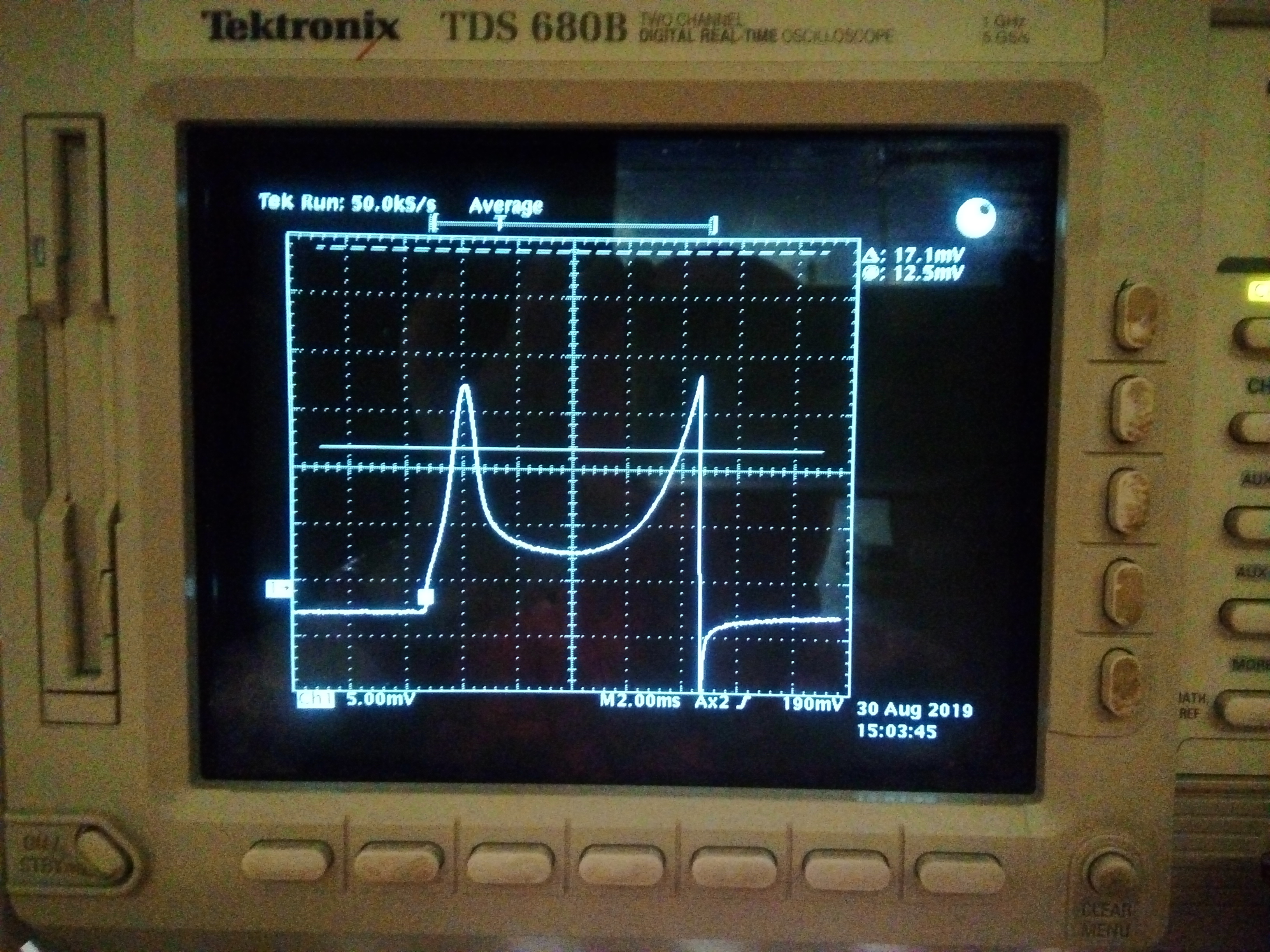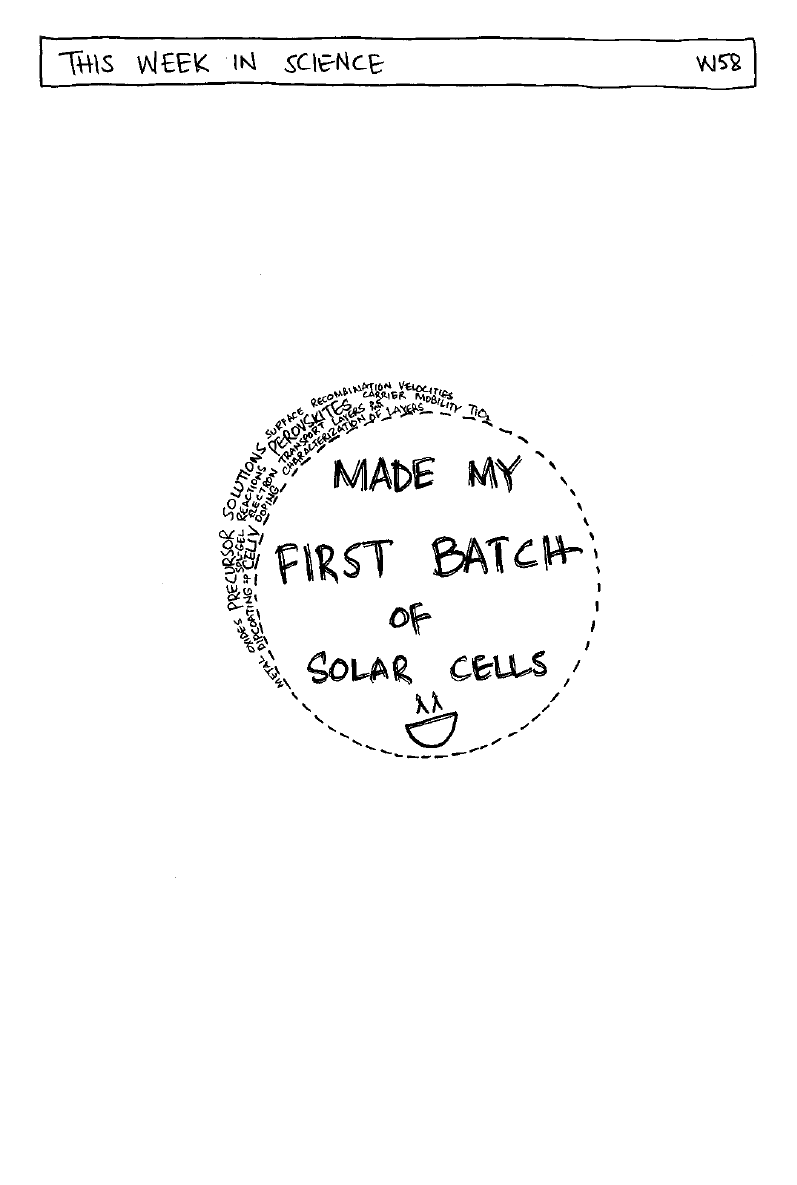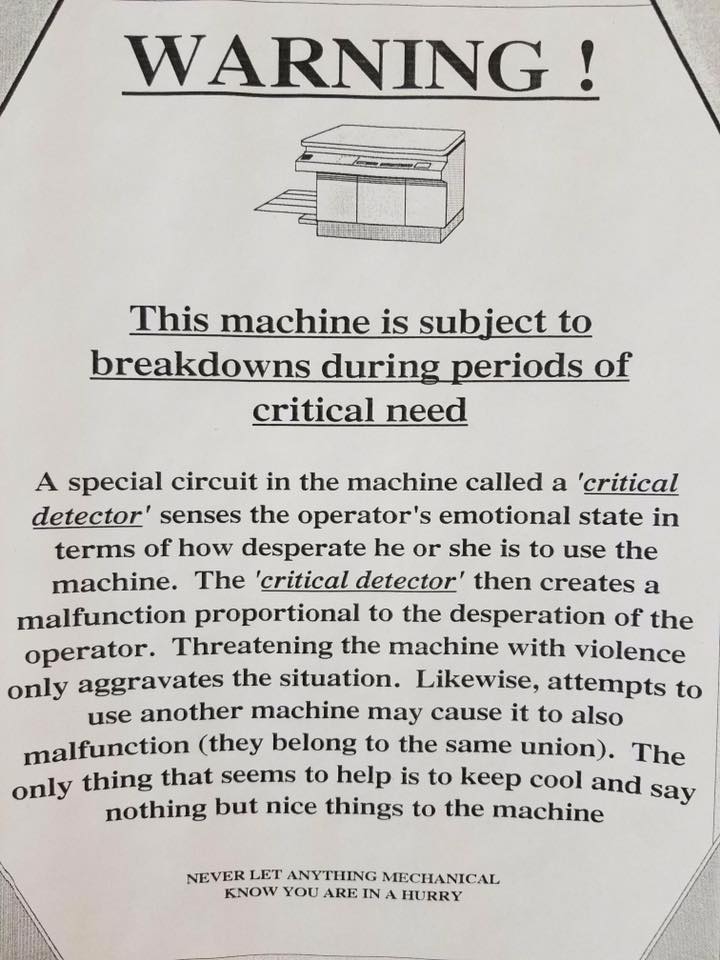I would like to, first, apologize for the misleading title.
Wikipedia defines “machine learning” as:
Machine learning is a field of computer science that uses statistical techniques to give computer systems the ability to learn (e.g., progressively improve performance on a specific task) with data, without being explicitly programmed.
But that is not what this post is about.
You see, as a junior scientist about to embark on your career path, one thing you should do is learn to use different machines. Some machines will make something for you, whereas others will tell you that those machines are probably not working, and despite all your efforts, it will be some time before you start getting good samples or results out of any thing in your lab.
So if you work in a lab, you’ll now have a very good idea of who rules there: It’s them. Now and forward, in your time as a researcher, you’ll go into many labs, meet a lot of people, and learn a lot of new stuff… but nothing and no one will judge you like those silent machines sitting smugly atop work benches of your lab.
Many a times, I have started working with one, thinking, oh this is going to be one of the easier ones. Never has that attitude worked for me. It’s like you cannot trust any single one of them; even the ones that you think you know, won’t think twice when it is as tempting as shattering your trust in them.
They don’t care if you are enthusiastic about research and have chosen this field as your career with such joy. They will happily make you think that you have nice typical graphs* in your presentation that you are about to show in your group meeting. They want you to suffer, to taste embarrassment, like they want to see how long you are going to last in this field that you have been so passionate about …
… Until you have proven yourself worthy of research.
As a result, one of the few things I have always found myself doing in the beginning is to start gaining favor of the machines that are in my lab. To build good rapport with them. And it is not easy, not with every machine. Even after you feel you two are going along well, they will still test you, or just throw you under the bus when they feel like it**.
If it all sounds depressing to you, let me tell you there is hope. Somehow, after you have stood beside them long hours and worked with them at odd times***, they will start to slowly accept you and let you enter the ranks of researchers. It’s blood, sweat and tears to gain that kind of trust, but you can gain the status of meh-you’ll-do in the eyes of the machines.
But don’t ever expect them to start liking you, because that’s ridiculous, they probably don’t have a heart.
* Well, okay, they may have been looking a little weird to you as well, but early on, you wouldn’t know that, thinking this is probably how they are supposed to be.
** Which tends to happen most on Fridays, followed next in probability by Mondays.
*** Condition of high-levels-of-consistency needs to be met with these requirements of long-hours and odd-times.




